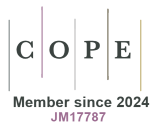Kidney Diseases: Challenges and Opportunities of the Third Millenium. How can digital health help the National Health System?
DOI:
https://doi.org/10.33393/abtpn.2020.2029Keywords:
Artificial intelligence, CKD, TechnologiesReferences
- Collaborators GBDRF; Forouzanfar MH, Alexander L, et al. Global, regional, and national comparative risk assessment of 79 behavioural, environmental and occupational, and metabolic risks or clusters of risks in 188 countries, 1990-2013: a systematic analysis for the Global Burden of Disease Study 2013. Lancet. 2015;386:2287–2323.
- De Nicola L, Donfrancesco C, Minutolo R, et al. Prevalence and cardiovascular risk profile of chronic kidney disease in Italy: results of the 2008-12 National Health Examination Survey. Nephrol Dial Transplant. 2015;30:806–814.
- Rashidi P, Bihorac A. Artificial intelligence approaches to improve kidney care. Nat Rev Nephrol. 2020;16:71–72.
- Jommi C, Armeni P, Battista M, et al. The cost of patients with chronic kidney failure before dialysis: results from the IRIDE Observational Study. Pharmacoecon Open. 2018;2:459–467.
- Karopadi AN, Mason G, Rettore E, Ronco C. Cost of peritoneal dialysis and haemodialysis across the world. Nephrol Dial Transplant. 2013;28:2553–2569.
- Fagugli RM, Guastoni CM, Battistoni S, Patera F, Quintaliani G. [Acute Kidney Injury: the nephrology plus value and competence and a good organization can ameliorate the prognosis]. G Ital Nefrol. 2016;33:pii:gin/33.4.9.
- Waikar SS, Curhan GC, Wald R, McCarthy EP, Chertow GM. Declining mortality in patients with acute renal failure, 1988 to 2002. J Am Soc Nephrol. 2006;17:1143–1150.
- Fagugli RM, Patera F, Battistoni S, Mattozzi F, Tripepi G. Six-year single-center survey on AKI requiring renal replacement therapy: epidemiology and health care organization aspects. J Nephrol. 2015;28:339–349.
- Meran S, Wonnacott A, Amphlett B, Phillips A. How good are we at managing acute kidney injury in hospital? Clin Kidney J. 2014;7:144–150.
- Abraham KA, Thompson EB, Bodger K, Pearson M. Inequalities in outcomes of acute kidney injury in England. QJM. 2012; 105:729–740.
- Meier P, Bonfils RM, Vogt B, Burnand B, Burnier M. Referral patterns and outcomes in noncritically ill patients with hospital-acquired acute kidney injury. Clin J Am Soc Nephrol. 2011;6:2215–2225.
- Tomasev N, Glorot X, Rae JW, et al. A clinically applicable approach to continuous prediction of future acute kidney injury. Nature. 2019;572:116–119.
- Adhikari L, Ozrazgat-Baslanti T, Ruppert M, et al. Improved predictive models for acute kidney injury with IDEA: intraoperative Data Embedded Analytics. PLoS One. 2019;14:e0214904.
- Kuo CC, Chang CM, Liu KT, et al. Automation of the kidney function prediction and classification through ultrasound-based kidney imaging using deep learning. NPJ Digit Med. 2019;2:29.
- Hermsen M, de Bel T, den Boer M, et al. Deep learning-based histopathologic assessment of kidney tissue. J Am Soc Nephrol. 2019;30:1968–1979.
- Putra FR, Nursetyo AA, Thakur SS, et al. Prediction of clinical events in hemodialysis patients using an artificial neural network. Stud Health Technol Inform. 2019;264:1570–1571.









